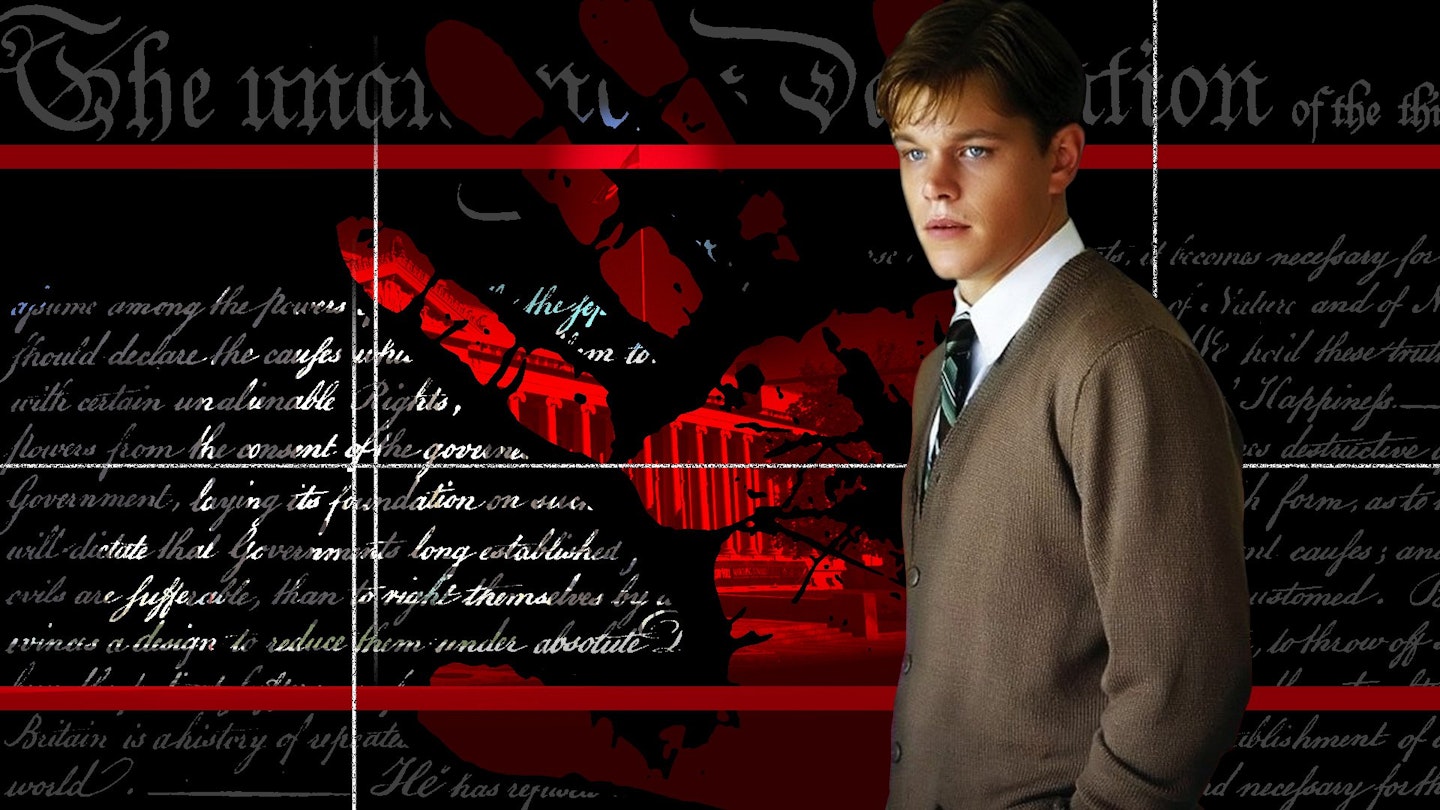Being the moment the great Francis Ford Coppola turned his "vision" to yet another of those John Grisham courtroom greenhorn-gets-bloodied-with-the-big-boys type yarns. Not that you'd notice. Without a trace of flamboyance or gravitas, he hits the lawyer-scribe's sappy yet readable prose head-on to deliver a watchable courtroom drama as perfunctory and efficient as any other upmarket Hollywood product. It feels like the deadening of a true creative spirit.
For your money, you get it all straight up, no fuss. Blue-eyed, hotfoot from law school without a penny to his name young spur Rudy (Damon, this year's O'Donnell/McConaughey/whathaveyou) tackles a huge insurance scam. Swindling giant Great Benefit (oooh, how ironic) have refused to pay for medical care on a death-bed leukaemia victim (added emotive charge). And with due care and attention, Coppola plies the Grisham graft. Rudy learns fast - aided by Danny DeVito's relishable ambulance chaser, hindered by Jon Voight's snidely defence attorney.
There are some amusing court bumbles as he fights the good fight, the preened suits underestimating him at every interjection. And a well cast procession of witnesses and interested parties - Danny Glover, Mickey Rourke, Roy Scheider, Virginia Madsen - turn up for cross-examination or sly advice.
To its credit, The Rainmaker (legalese for a young lawyer employed to bolster a firm with rich clients, the real moneymakers) is a stronger bet than the previous 35 or however many Grisham movies before it. It boasts not a single but a three-strand story with two chunky subplots: Rudy falling for beaten wife Kelly (Danes) allowing a love interest and a bit of shock-violence; Rudy's landlady possibly sitting on a real pot of money allowing some comedic relief. And the central drama works well enough, with the predictable triumph fringed with some quasi-profound musings on the scumminess of lawyers, albeit delivered with Grisham's stable Memphis ham: "If you keep crossing the line then one day it'll disappear..." It's just so unremarkable. Which, considering its director's monumental output (both good and bad) is, frankly, a bit depressing.

